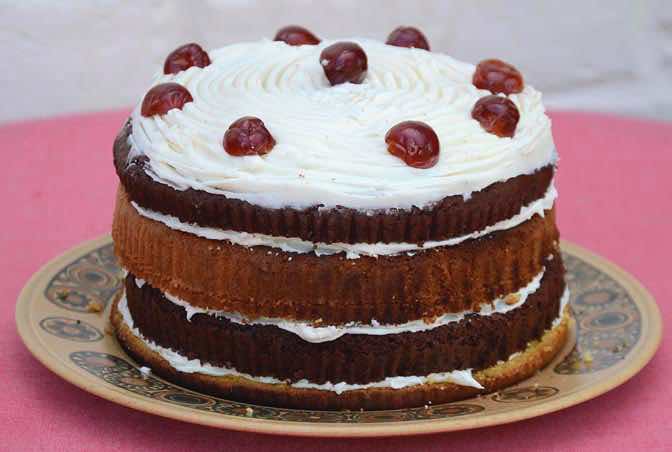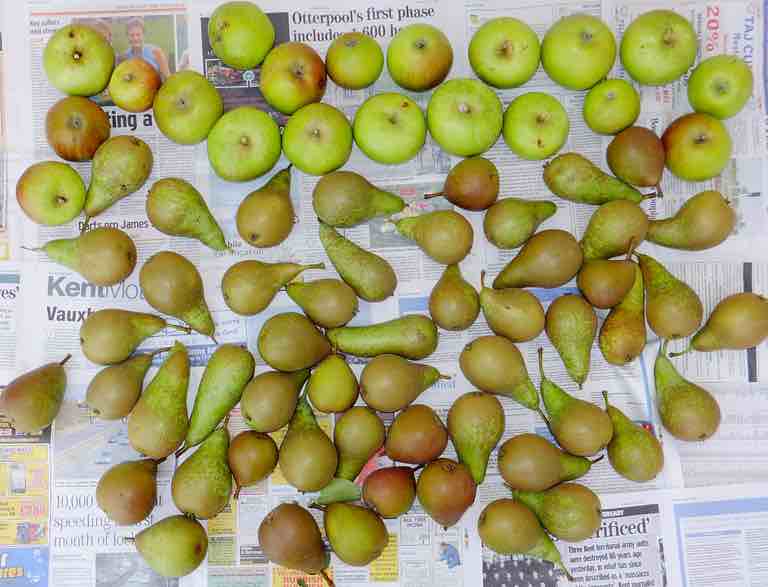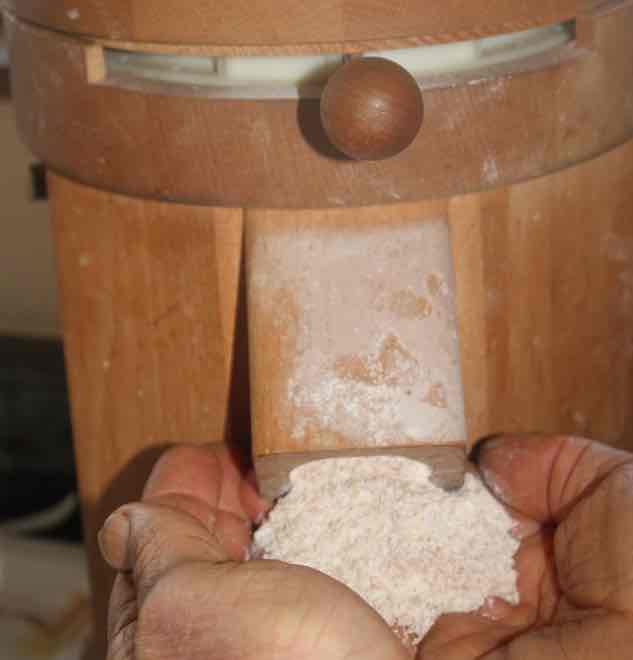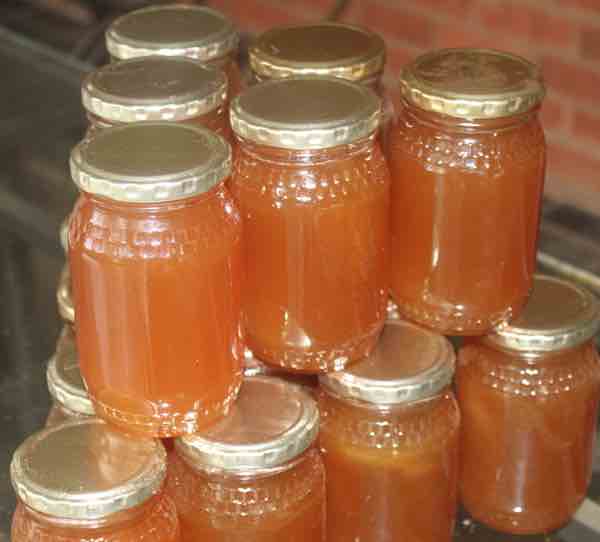- Homepage
- Weight Loss
- Excessive Sugar Drives Dementia and Stroke
Excessive sugar drives dementia and stroke
Excessive sugar drives dementia and stroke particularly when accompanying a highly-refined carb diet which also floods the portal blood stream with glucose.
When highly trained scientists speak frankly we should at least weigh what they are saying before we reject their findings out of hand. Will you and perhaps more importantly, could you for ever cut your sugar consumption to under 10tsp per day?
Sugar is more addictive than alcohol or tobacco.
The German Nutrition Society recommends that no more than ten percent of energy should come from sugar; that's about 50 g per day or 10 teaspoons."
At the 2024 conference of World Brain Day, president Dr Frank Erbguth explained that lavish sugary meals and constant snacking on the side overloads the system with glucose; fueling the development of stroke and dementia.
"Here is the research, as reported elsewhere. This is what I think about it.”
- Brian McNair, Strathclyde University
The average German is consuming double the recommended amount of sugar; consequently 250,000 people are diagnosed with dementia each year.
High sugar levels damage the inner lining of capillary vessel walls in the brain; inflammation and deposits restrict the flow of blood.
In addition when sugar attaches to an aminoglycan in the brain it directly impairs cognition.

Anecdote
For more than ten years I have not been able to memorise my cellphone number; it was an anxious period. Then I discovered that I was suffering from prediabetes. Since giving up virtually all sugar and refined carbs I now have no difficulty whatsoever recalling this basic item.
In Erbguth's words, glycated protein molecules in the brain disrupt the synapses between nerve cells known as "neuronal plasticity;" you cannot remember things.
Ten years after the diagnosis of diabetes the risk of dementia is more than double according to Harvard Health[1]; already 1 out of 9 persons of 65 in the US has Alzheimer's Disease.
Largely avoiding sugar
Professor Peter Berlit from the German Society of Neurology recommends doing our level best to avoid all sugar. Just one teaspoon sends signals to the brain via the vagus nerve causing a strong craving for more.
He points out that very few of us can eat just one square of chocolate; soon the whole bar is consumed.
Each square is reinforced by the release of dopamine, the "feel-good hormone;" after even small amounts of sugar it leads to the desire for more.
"40 percent of all dementia cases and 90% of strokes are preventable; with many of them linked to industrial sugar."
- Prof Peter Berlit
Difficulties
I do have some difficulties with this research. But I do understand that medical scientists are trying to get a message across; table sugar from all sources in large amounts is toxic.
So they want to keep it simple.
Fruit

They state that those 50 grams of sugars per day should include any fruit consumed. That would mean that eating an apple which contains 18 g of mainly fructose would be very unhealthy.
That's in stark contrast with a powerful meta-analysis proving that an apple a day significantly decreases the risk of type 2 diabetes.
Honey
 Natural honey actually lowers blood glucose
Natural honey actually lowers blood glucoseThey also state that those 50 grams of sugars should include any honey consumed.
But they make no reference to the fact that natural honey has a low GI; and it actually lowers fasting blood glucose. But to be honest it's difficult to find unless you know a local beekeeper.
So they make a blanket statement blackening all sources of sugars. But I'm quite certain that if we were to button-hole these professors they would be quick to deny that meant refraining from eating apples. I wonder if they know about this research by another group of German scientists[3] about some honey varieties in their homeland.
Refined carbs
"One large bagel for breakfast and two slices of white bread for lunch amounts to seven servings of refined flour; with a 47% greater risk of stroke according to research in BMJ[1]."
Refined carbs also release large amounts of glucose into the blood stream; exacerbating the effect of any sugar consumed.
Just one slice of chocolate cake for example contains 50 grams of sugar and starch.
Chronic over-consumption of refined carbs including sugar is the true cause of T2 diabetes; and the associated risk of dementia and stroke.
Scientists are now also arguing that they are the true cause of most cases of hypertension.
"Dainty bits make rich the ribs but bankrupt quite the wits."
- Love's Labours Lost
Whole meals
We also should be considering the effect of the whole meal. For example, if it contains large amounts of fibre, stomach emptying is delayed and blood glucose will not rise to the same extent if we treat ourselves with a bar of chocolate.
That slice of chocolate cake contains only 2g of fibre; very little. There is no satiety; your hypothalamus will demand a second slice and an hour later a third.
It's no coincidence that we would normally enjoy dessert at the end of the meal. A high fibre dinner would ameliorate the affect of all that glucose be it from carbs, sugar or fruit.
"Metabolic syndrome is associated with a 24% increased risk for young-onset dementia."
- Korean National Research Foundation
Metabolic Syndrome is defined by three or more of these signs.
- Excess belly fat
- High blood pressure
- High fasting blood glucose
- Increased triglycerides
- Low levels of HDL cholesterol
The fasting blood glucose test misses about 25% of those suffering from prediabetes; it will likely soon be replaced by the 1 hour GTT.
Taste
One of the great dilemmas is that refined carbs like flour and grits have almost no taste once the germ and bran have been extracted; nor are they satiating, so typically large amounts of sugar and salt are added.
Try making a chocolate cake with no sugar.
The nutrients that give starches their aroma and taste are mainly found in the bran and germ; extract them and all that's left is empty highly glycaemic carbs.
The fragrance from these volatile nutrients when grains are being milled is one of the delights very few people ever will experience.
Try smelling cake flour.
It's little different with real honey. Walk through an apiary when the nectar is pouring in; the scent of a million flowers will blow you away.
Try smelling commercial honey.



Exercise
Excessive sugar drives dementia and stroke. That's no doubt true but they make no mention in this report of how short brisk walks after sweet treats ameliorate the rise in blood glucose.
In other research[4] recently published, inactive diabetics who sit more than 8 hours per day have a 74% increased risk of all-cause mortality; but if they took just a daily 20 minute brisk walk, this was completely nullified.
Walking, high-fibre foods and chewing
My own pet theory is that we subconsciously think that the time spent walking and chewing is wasted. The consequences are dire; chronically raised blood glucose.
Preparing and eating a fibre-rich diet takes planning and perhaps an extra hour per day for one person in the family; add to that a 20 minute walk.
"Human judges can show mercy. But against the laws of nature, there is no appeal."
- Sir Arthur C. Clarke
Either someone in the family makes time for good food and we all decide to exercise daily or we should start planning for a lot more consulting doctors and pharmacists; and perhaps losing our marbles or having a stroke.
Sugar substitutes
Despite the FDA having approved many non-nutritive sweeteners such as saccharin and sucralose, the overwhelming evidence in the literature is that they are definitely not a healthy alternative to sugar.
They negatively affect the microbiome in the intestines, those friendly bugs that protect us against chronic inflammation. They increase mutations of E. Coli, the bacterium associated with dementia.
They also contribute to antibiotic resistance.
"An intermediary of sucralose was recently discovered by researchers to increase expression of genes associated with inflammation, oxidative stress, and cancer[5]."
One study has found that saccharin and sucralose, rather than improving blood sugar actually are associated with worsened glycemic control.
There are repeated studies showing that these non-nutritive sweeteners damage the epithelium in the intestine and contribute to leaky gut syndrome[6].
There is no safe alternative to sugar; if we want to avoid these chronic painful inflammatory diseases we have to pull the sweet tooth.
Excessive sugar drives dementia and stroke; and many other inflammatory diseases.
Processed red meat
Researchers have also found that two servings of processed red meat (2 x 50 grams) also drives up the risk of dementia by 13%; bacon, polony and hot dogs, for example[8]. They speculate that the build up of amyloid and misfolded tau proteins is caused by the release of a specific chemical by bacteria in the gut after consumption of these noxious foods.
Eggs
A 2016 study published in J Am Coll Nutr found that enjoying one egg per day lowered the risk of stroke by 12%; and had no association with heart disease.
Babies and toddlers
Researchers have found that 44% of products for babies and toddlers in the US do not comply with WHO sugar standards[7]. Perhaps worse virtually all of the 651 foods examined made claims prohibited by the "Nutrient and Promotion Profile Model."
14 modifiable risk factors
Of course there are many other risk factors involved in dementia. Scientists have found 14 lifestyle and dietary modifiable changes that we can make to drastically reduce the chances of us losing our marbles.
"In a prospective cohort study of 92 383 adults observed over nearly thirty years, the consumption of more than 7 g/d (1.5tsp) of olive oil daily was associated with a 28% lower risk of dementia-related death compared with never or rarely enjoying it, irrespective of diet quality."
- JAMA open network
The material expressed on this page is gleaned from the nutritional and environmental literature; it is clearly referenced. A plain distinction is made between the author's opinion and that which is scientifically proven. When in doubt consult your health professional.
To suggest a correction or clarification, write to Dr Bernard Preston here. Contact.
Excessive sugar drives dementia and stroke
Excessive sugar drives dementia and stroke; less than 10 tsp per day is recommended.
Mutations of certain genes by reactive oxygen species result in the brain accumulating two toxic compounds; healthy tau proteins that have misfolded into the dangerous phosphorylated form and beta-amyloid.
- What's the relationship between diabetes and dementia?
- Sugar May Drive Dementia, German Medical Societies Warn.
- Glycaemic and insulinaemic properties of some German honey varieties.
- Sitting Time and Its Interaction With Physical Activity in Relation to All-Cause and Heart Disease Mortality in U.S. Adults With Diabetes.
- Toxicological and pharmacokinetic properties of sucralose
- Sugar Substitutes, Originally Meant to Reduce Health Risk, May Wreak Havoc on Gut Microbiomes
- An Evaluation of the Nutritional and Promotional Profile of Commercial Foods for Infants and Toddlers in the United States
- Long-Term Intake of Red Meat in Relation to Dementia Risk
When browsing use right click and "Open Link in New Tab" or you may get a bad gateway signal.
Newsletter
Our newsletter is entitled "create a cyan zone" at your home, preserving both yourself and Mother Earth for future generations; and the family too, of course. We promise not to spam you with daily emails promoting various products. You may get an occasional nudge to buy one of my books.
Here are the back issues.
- Lifestyle and ideal body weight
- What are ultra-processed foods?
- Investing in long-term health
- Diseases from plastic exposure
- Intensive lifestyle management for obesity has limited value
- A world largely devoid of Parkinson's Disease
- The impact of friendly bacteria in the tum on the prevention of cancer
- There's a hole in the bucket
- Everyone is talking about weight loss drugs
- Pull the sweet tooth
- If you suffer from heartburn plant a susu
- Refined maize meal and stunting
- Should agriculture and industry get priority for water and electricity?
- Nature is calling
- Mill your own flour
- Bake your own sourdough bread
- Microplastics from our water
- Alternative types of water storage
- Wear your clothes out
- Comfort foods
- Create a bee-friendly environment
- Go to bed slightly hungry
- Keep bees
- Blue zone folk are religious
- Reduce plastic waste
- Family is important
- What can go in compost?
- Grow broad beans for longevity
- Harvest and store sunshine
- Blue zone exercise
- Harvest and store your rainwater
- Create a cyan zone at your home
Did you find this page interesting? How about forwarding it to a friendly book or food junkie? Better still, a social media tick would help.
- Homepage
- Weight Loss
- Excessive Sugar Drives Dementia and Stroke
Address:
56 Groenekloof Rd,
Hilton, KZN
South Africa
Website:
https://www.bernard-preston.com